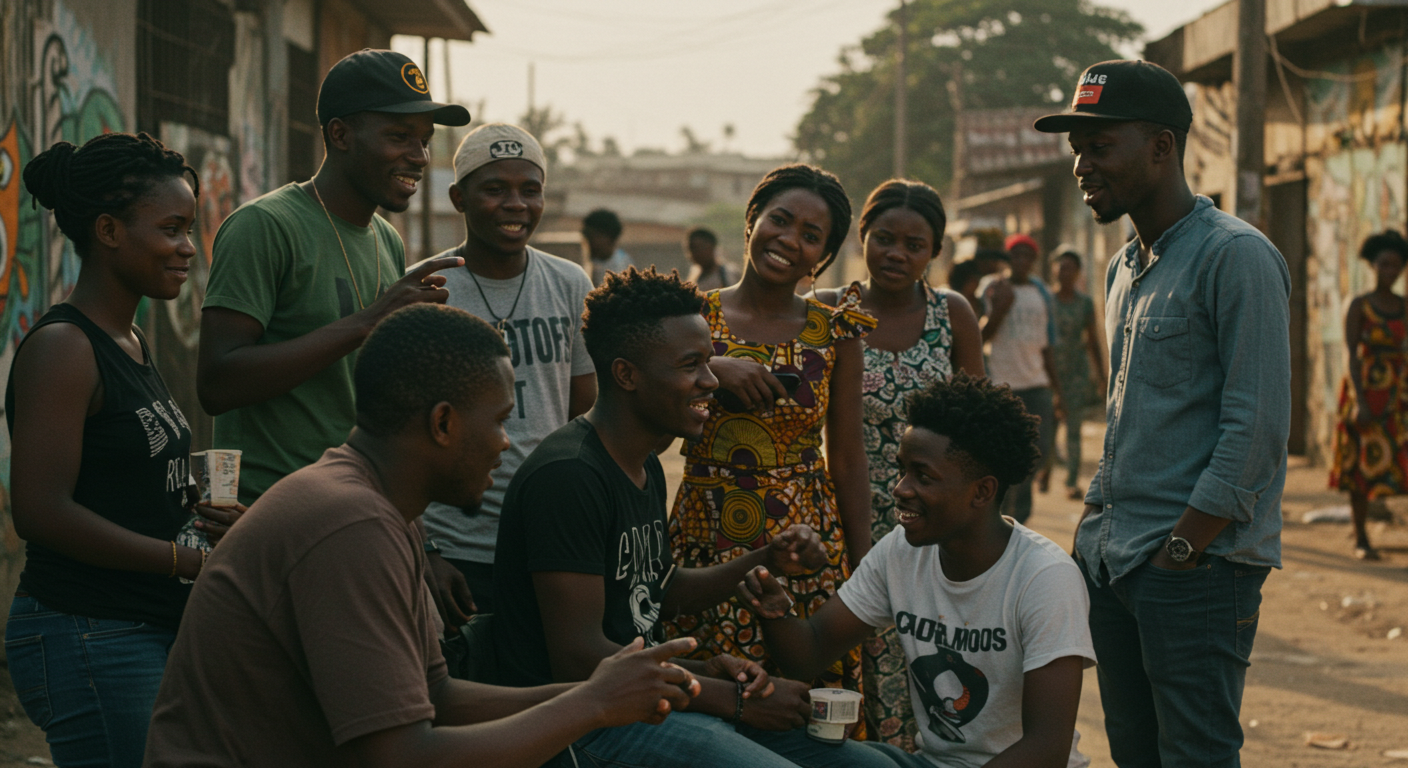Language is a living, breathing force. Nowhere is this more evident than in Africa’s bustling cities, where words, phrases, and expressions shift with each generation. Urban African language is not just about communication—it is a cultural mirror, reflecting identity, history, and the creative spirit of the people. From the street slang of Lagos to the township lingo of Johannesburg and the youth codes of Nairobi, urban African language is constantly evolving, blending the old with the new in ways that shape how communities connect.
1. The Roots of Urban Language
African cities are linguistic melting pots. Migration from rural areas, colonial history, and globalization have shaped the way urban Africans speak. Many cities host multiple ethnic groups, each bringing their native tongues into shared spaces. Out of necessity and creativity, hybrid languages emerge—mixing indigenous languages with colonial ones (English, French, Portuguese, Arabic) and other global influences.
For example:
- Sheng in Nairobi fuses Swahili and English with words from Kikuyu, Luo, and other languages.
- Camfranglais in Cameroon blends French, English, Pidgin, and local dialects.
- Tsotsitaal in South Africa mixes Afrikaans, English, and African languages like Zulu or Sotho.
These linguistic blends allow urban dwellers to communicate across cultural lines while creating a sense of insider belonging.
2. Slang as a Cultural Signature
Urban slang often emerges from youth culture, music, and social trends. It’s playful, fast-changing, and deeply tied to identity. In Lagos, Nigerian Pidgin phrases like No wahala (No problem) or E choke (It’s overwhelming or exciting) spread quickly through music and social media. In Johannesburg, Sharp-sharp means “all good” while in Nairobi, Niaje? means “What’s up?”
Slang can serve as:
- A marker of in-group identity – understanding the latest slang signals you belong.
- A tool of resistance – historically, colonial authorities and outsiders often could not understand local slang, giving it a subversive edge.
- A form of creativity – bending meanings, twisting pronunciations, and remixing words into something uniquely urban.
3. The Digital Age Acceleration
Social media has turbocharged the spread of slang. Platforms like Twitter (X), TikTok, and Instagram have made it possible for phrases from one city to cross borders in days. A catchphrase from a viral comedy skit in Ghana can be on the lips of teenagers in Tanzania by the end of the week.
Hashtags have also immortalized certain expressions. For example:
- #StayWoke – though African in origin through Black consciousness movements, it has taken on global meaning.
- #KeDecemberBoss – a South African end-of-year party season expression.
- #NaijaNoDeyCarryLast – Nigerian pride in always excelling.
Digital culture ensures that slang is no longer just local—it is regional and often global.
4. The Journey from Slang to Saying
Some slang words burn bright and fade fast. Others become so widely accepted that they graduate into sayings—recognized expressions used beyond their original social groups.
For instance:
- Hakuna Matata began as a Swahili phrase meaning “no worries” and became globally known through tourism and pop culture.
- Small small (meaning “gradually” or “step by step”) is common in West Africa and now appears in everyday business conversations.
- Ubuntu (humanity towards others) was originally a Southern African concept but has become a widely respected philosophical term.
When slang becomes saying, it reflects its cultural staying power—the point at which it stops being “trendy” and becomes part of the shared language.
5. The Influence of Music, Film, and Fashion
Afrobeats, Amapiano, Gqom, Bongo Flava, and hip-hop have been major vehicles for slang. Lyrics introduce new words that fans adopt and spread. Nollywood and South African soap operas have also given rise to catchphrases that become everyday speech.
Fashion also plays a role: T-shirts and caps often carry printed slang, turning phrases into visible, wearable culture. For example, Ghana’s Charley (meaning friend/brother) is popular on streetwear, while Kenya’s Kiasi (meaning “small amount”) appears on youth merch.
6. Slang as a Social Mirror
Urban African slang often reflects social realities—politics, economy, and generational shifts. In Nigeria, Japa (to run away or emigrate) captures the mass movement of young people seeking opportunities abroad. In South Africa, Eish! is an exclamation that covers everything from frustration to disbelief. These expressions are emotional barometers, capturing the mood of the moment in a way formal language cannot.
7. Preserving the Playfulness
Some fear that the rapid churn of slang erodes “proper” language use. However, linguists argue that slang is a natural part of language evolution. It keeps communication fresh and relevant. The challenge is in documenting and preserving these expressions so they’re not lost to time.
Projects like online slang dictionaries, language podcasts, and TikTok language explainers are helping to archive these vibrant urban lexicons. This preservation ensures that future generations can trace how expressions shaped cultural identity.
8. The Future of Urban African Language
Urban African language will continue evolving, influenced by migration, technology, and pop culture. As African cities grow and digital life expands, we will likely see:
- More cross-border hybrid slang – mixing words from multiple countries.
- Greater global adoption – African expressions influencing mainstream English, French, and Portuguese.
- Tech-inspired slang – terms born from online gaming, cryptocurrency, and AI conversations.
One thing is certain: urban African language will remain a creative playground, blending humor, wit, and cultural pride.
Conclusion
From the backstreets of Kampala to the rooftop bars of Dakar, slang and sayings form the heartbeat of urban African communication. They are more than words—they are stories, inside jokes, and cultural fingerprints. As they evolve, they remind us that African cities are places of constant reinvention, where language moves as fast as the people and the beat of the music in the air.



